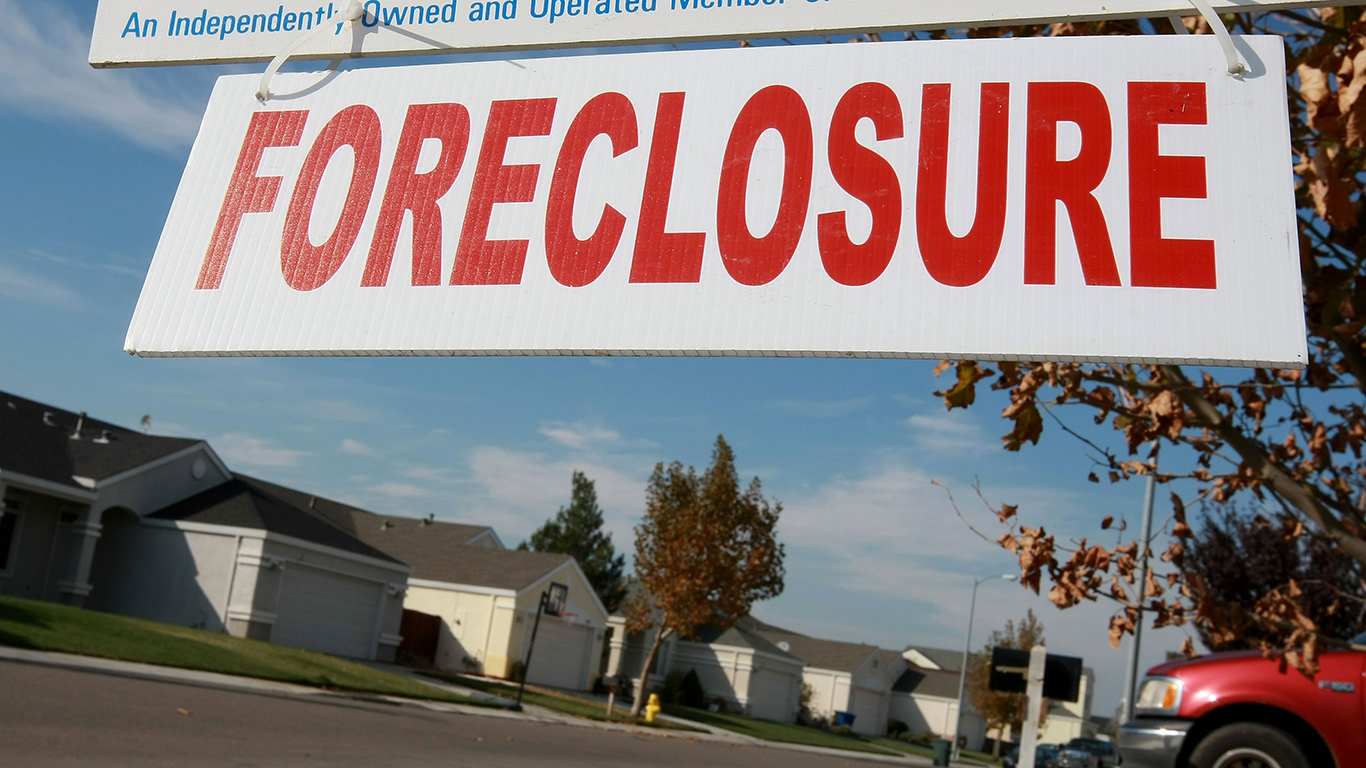Housing
Mortgage Delinquencies, Foreclosure Inventory Decline Again in June

Published:
Last Updated:

The share of home mortgage loan payments that are 30 days or more past due fell from 4.6% in June 2017 to 4.3% in June 2018. The foreclosure inventory rate fell from 0.7% to 0.5% in the same period.
The share of mortgages that transitioned from current to 30 days past due was 0.9% in June 2018, unchanged year over year. This year’s rate remains somewhat lower than the transition rate of 1.2% just before the housing crisis struck and well below the peak rate of 2.0% in November 2008.
The data were reported Tuesday by CoreLogic in its Loan Performance Insights report. Early-stage delinquencies, defined as 30 to 59 days past due, remained unchanged year over year in June at 2%. The share of mortgages that were 60 to 89 days past due in June was 0.6%, also unchanged compared with last year’s rate. According to CoreLogic, measuring early-stage delinquency rates is important for analyzing the health of the mortgage market.
CoreLogic’s chief economist, Dr. Frank Nothaft, said:
A solid labor market enables more homeowners to remain current on their mortgage. The national unemployment rate in June 2018 was 4 percent, the lowest for June in 18 years. While this has helped reduce delinquencies nationally, delinquency rates in areas hit by wildfires, hurricanes, or other natural disasters have jumped as families deal with financial disruption and tragedy. The loss of housing and displacement of families also tends to drive up local rents and reduce vacancies.
Frank Martell, president and CEO of CoreLogic, added:
Due to last year’s hurricane season, Florida and Texas experienced increases in serious delinquency rates over the past year. Neighborhoods impacted by similar disasters in 2018 would also expect to see a spike in delinquencies in the coming year. With storms and wildfires currently impacting multiple areas of the country, homeowners, lenders and servicers should remain vigilant of potential impacts, particularly those in California, Hawaii and the Rocky Mountain and Gulf Coast states.
The states with the lowest 30-plus delinquency rate in June 2018 were Colorado (2.0%), Oregon (2.1%), North Dakota (2.2%), Washington (2.2%) and Idaho (2.4%). The 30-plus delinquency rate was highest in Mississippi (8.0%), Louisiana (7.2%) and New York (6.3%).
Among the largest U.S. metro areas, the highest 30-plus delinquency rates in June were posted in Miami (7.2%) and Houston (6.5%). Among these large metro areas, the lowest rates were reported in San Francisco (1.5%) and Denver (1.8%).
The last few years made people forget how much banks and CD’s can pay. Meanwhile, interest rates have spiked and many can afford to pay you much more, but most are keeping yields low and hoping you won’t notice.
But there is good news. To win qualified customers, some accounts are paying almost 10x the national average! That’s an incredible way to keep your money safe and earn more at the same time. Our top pick for high yield savings accounts includes other benefits as well. You can earn up to 3.80% with a Checking & Savings Account today Sign up and get up to $300 with direct deposit. No account fees. FDIC Insured.
Click here to see how much more you could be earning on your savings today. It takes just a few minutes to open an account to make your money work for you.
Thank you for reading! Have some feedback for us?
Contact the 24/7 Wall St. editorial team.